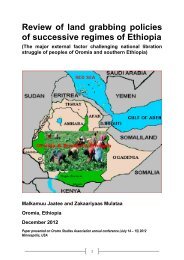freakonomics
freakonomics
freakonomics
You also want an ePaper? Increase the reach of your titles
YUMPU automatically turns print PDFs into web optimized ePapers that Google loves.
words “sumo” and “rigged” in the same sentence can cause a national furor. People tend<br />
to get defensive when the integrity of their national sport is impugned.<br />
Still, allegations of match rigging do occasionally find their way into the Japanese media.<br />
These occasional media storms offer one more chance to measure possible corruption in<br />
sumo. Media scrutiny, after all, creates a powerful incentive: if two sumo wrestlers or<br />
their stables have been rigging matches, they might be leery to continue when a swarm of<br />
journalists and TV cameras descend upon them.<br />
So what happens in such cases? The data show that in the sumo tournaments held<br />
immediately after allegations of match rigging, 7–7 wrestlers win only 50 percent of their<br />
final-day matches against 8–6 opponents instead of the typical 80 percent. No matter how<br />
the data are sliced, they inevitably suggest one thing: it is hard to argue that sumo<br />
wrestling isn’t rigged.<br />
Several years ago, two former sumo wrestlers came forward with extensive allegations of<br />
match rigging—and more. Aside from the crooked matches, they said, sumo was rife<br />
with drug use and sexcapades, bribes and tax evasion, and close ties to the yakuza, the<br />
Japanese mafia. The two men began to receive threatening phone calls; one of them told<br />
friends he was afraid he would be killed by the yakuza. Still, they went forward with<br />
plans to hold a press conference at the Foreign Correspondents’ Club in Tokyo. But<br />
shortly beforehand, the two men died—hours apart, in the same hospital, of a similar<br />
respiratory ailment. The police declared there had been no foul play but did not conduct<br />
an investigation. “It seems very strange for these two people to die on the same day at the<br />
same hospital,” said Mitsuru Miyake, the editor of a sumo magazine. “But no one has<br />
seen them poisoned, so you can’t prove the skepticism.”<br />
Whether or not their deaths were intentional, these two men had done what no other sumo<br />
insider had previously done: named names. Of the 281 wrestlers covered in the data cited<br />
above, they identified 29 crooked wrestlers and 11 who were said to be incorruptible.<br />
What happens when the whistle-blowers’ corroborating evidence is factored into the<br />
analysis of the match data? In matches between two supposedly corrupt wrestlers, the<br />
wrestler who was on the bubble won about 80 percent of the time. In bubble matches<br />
against a supposedly clean opponent, meanwhile, the bubble wrestler was no more likely<br />
to win than his record would predict. Furthermore, when a supposedly corrupt wrestler<br />
faced an opponent whom the whistle-blowers did not name as either corrupt or clean, the<br />
results were nearly as skewed as when two corrupt wrestlers met—suggesting that most<br />
wrestlers who weren’t specifically named were also corrupt.<br />
So if sumo wrestlers, schoolteachers, and day-care parents all cheat, are we to assume<br />
that mankind is innately and universally corrupt? And if so, how corrupt?<br />
The answer may lie in…bagels. Consider the true story of a man named Paul Feldman.









